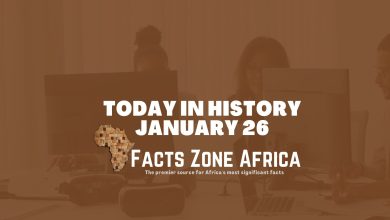Life in Sierra Leone: Where WOMEN SEEK FOREIGN LOVE

Today we explore an exciting journey through the heart of Sierra Leone! 🌍✨ Often misunderstood but brimming with charm, Sierra Leone is a hidden gem in West Africa—a place where affordability meets adventure, and culture blends seamlessly with natural beauty.
In today’s article, we’ll uncover the real Sierra Leone: from its stunning beaches and bustling streets of Freetown to the vibrant festivals and mouthwatering local cuisine. 🍛🏖️ Whether you’re a nature lover, a history buff, or a curious traveler, Sierra Leone has something unforgettable waiting for you.
Sierra Leone, a small yet remarkable country in West Africa, is home to countless stories waiting to be uncovered. Among its unique cultural attributes, the country is introducing innovative programs aimed at promoting gender equality, including schools that teach men how to be supportive and caring husbands.
Imagine a land where nature meets resilience. One of the country’s natural wonders is a towering tree, standing as tall as a seven-story building, with a sprawling canopy that could shade half a basketball court. Beyond its scenic beauty, Sierra Leone offers an inspiring blend of history and culture, so join us as we delve into the fascinating life of this lion-hearted nation.
A Glimpse into Sierra Leone
Nestled in West Africa, Sierra Leone shares borders with Guinea to the northeast, Liberia to the southeast, and the Atlantic Ocean to the southwest. Despite being the region’s smallest nation, covering 71,740 square kilometers (27,699 square miles)—about the size of West Virginia—Sierra Leone boasts a rich diversity of landscapes, ranging from savannas to tropical rainforests and long, picturesque coastlines.
The country’s name, Sierra Leone, originates from the Portuguese explorer Pedro de Sintra, who named it Serra Leoa, or “Lion Mountains,” after the majestic, lion-like shapes of the mountains near modern-day Freetown. Over centuries, the name evolved into its English form.
As of January 2025, Sierra Leone’s population stands at approximately 8.8 million—comparable to New York City. This population is among the fastest-growing in Africa, with a birth rate averaging 5.6 children per woman. These numbers reflect both cultural norms and government efforts to recover from the devastating impacts of the country’s tumultuous past.
Resilience Amid Challenges
Sierra Leone’s history is marked by resilience. During times of strife, many citizens sought safety in neighboring countries like Guinea, Liberia, and Côte d’Ivoire or migrated to Western nations such as the United States, Canada, and Germany. Despite these hardships, Sierra Leoneans remain optimistic and resourceful.
Visitors often find locals conversing in English, though it may sound unique due to its blend with Krio—a Creole language influenced by African, Caribbean, and European traditions. This linguistic creativity mirrors the nation’s ability to find joy even in adversity.
Vendors encourage themselves on slow days by saying, “Tomorrow will be luckier,” while community traditions like Camaras—where neighbors pool resources to complete communal projects—showcase a spirit of togetherness.
Also Read: Top Leading Diamond Producers in Africa
Gender Equality and Empowerment
One of Sierra Leone’s most notable initiatives is its effort to address gender inequality. While challenges remain, such as ranking low on global indices for women’s rights and happiness, the nation is taking strides toward change. A groundbreaking program focuses on teaching men how to be better husbands through dedicated schools.
These “husband schools” have trained over 50,000 men across the country, offering lessons in gender equality, reproductive health, and family support.
In collaboration with the Pamama Program, participants apply these lessons at home, fostering a more equitable household dynamic. The impact is tangible: men like Saidul Amin, who once neglected his responsibilities, now proudly share household chores and prioritize their families.
A Safe Haven for Travelers?
Opinions on Sierra Leone’s safety for tourists vary, but its rich culture, breathtaking landscapes, and resilient people make it a destination worth exploring. Whether it’s the warmth of its communities or its innovative programs for societal change, Sierra Leone offers an experience that’s as inspiring as it is unique.
Travel Insights: Safety and Experiences in Sierra Leone
Sierra Leone is a land of contrasts—its rich culture and breathtaking landscapes beckon travelers, but official warnings from governments like the U.S., Canada, Australia, and Ireland advise exercising increased caution due to security concerns. On the other hand, many travel bloggers argue that Sierra Leone is one of the friendliest and most welcoming destinations in West Africa. So, what’s the reality? The truth lies somewhere in between, with personal experiences shaping your perspective of this unique country.
While you’re unlikely to encounter direct harm, precautions are essential. Avoid areas of protest or unrest, limit nighttime travel, and keep personal belongings secure. To reduce the risk of petty theft, avoid carrying large sums of cash or valuables.
Exploring Freetown: Sierra Leone’s Capital
Freetown, the heart of Sierra Leone, is a city of contrasts. While affluent neighborhoods like Aberdeen boast modern hotels and luxury villas, slum areas like Kru Bay reflect a different side of urban life. The vibrant streets are alive with the sounds of vendors hawking goods, children playing, and the aroma of street food like grilled fish and acara filling the air.
Freetown also serves as the country’s primary port and a commercial hub for commodities such as platinum, gold, diamonds, and oil. On bustling port days, international cargo ships dock alongside local fishermen selling their daily catch, creating a dynamic and colorful scene.
Among its notable landmarks is Fourah Bay College, established in 1827, the first Western-style university in West Africa. Historically, the city was home to the iconic Cotton Tree—a 238-year-old giant that stood as a symbol of Sierra Leone. Though it fell during a storm in May 2023, its legacy remains an integral part of the nation’s history and spirit.
Sierra Leone’s Natural Wonders
The country’s pristine beauty makes it a haven for nature lovers and adventurers alike.
- Beaches: River Number 2 Beach, with its soft white sand and turquoise waters, is a must-visit. It’s perfect for sunbathing, surfing, and kayaking. Peninsula Beach offers a quieter escape with serene fishing villages and local culture.
- Tiwai Island: This wildlife sanctuary on the Moa River boasts over 135 bird species and 11 primate species, making it a paradise for eco-tourists. Jungle trekking and canoeing at sunset are unforgettable experiences.
- Loma Peak: As the highest mountain in West Africa, this 1,945-meter peak offers challenging trails, tropical forests, and rewarding panoramic views.
Also Read: Ranking: 10 African Nations with the Most Weakest Currencies in 2024
Cultural Festivals and Local Cuisine
Sierra Leone’s festivals are vibrant celebrations of its cultural heritage.
- Bongo Night Festival: A lively coastal event featuring rhythmic drumming, traditional dancing, and a festive atmosphere.
- Tangains Festival: Held in the northern town of Kabala, this event showcases colorful parades, storytelling, and community barbecues.
For food enthusiasts, Sierra Leone offers tantalizing dishes like Jollof rice, pepper soup, and fufu, paired with soups such as groundnut stew. Wash it down with a refreshing glass of ginger beer for a true taste of the region.
Cost of Living
Sierra Leone offers a low cost of living compared to many other countries. In Freetown, renting a one-bedroom apartment in the city center ranges from $200 to $500 per month, while suburban accommodations are more affordable, starting at $100.
With its stunning landscapes, rich cultural traditions, and welcoming locals, Sierra Leone offers an enriching travel experience for those willing to embrace its complexities.
In rural areas of Sierra Leone, where infrastructure is limited, housing is remarkably inexpensive—often just a few dozen dollars per month. However, these accommodations usually come with basic living conditions. Food is also very affordable, with staples like rice, fish, and vegetables readily available. Shopping at traditional markets is the most economical choice, with monthly grocery expenses for basic items ranging from $20 to $50.
For dining, a simple meal at a local eatery costs just $1 to $3, while upscale restaurants in Freetown charge $15 to $20 per meal. Imported goods, such as canned foods and Western products, are considerably more expensive due to taxes and shipping fees.
Transportation in Sierra Leone
Getting around is affordable but can be less convenient. Public buses and motorcycles, known as okatas, are widely used, with fares starting at $0.50 to $1 for short trips. Shared taxis are another common option, costing $1 to $3 per person depending on the distance. For those who own cars, expenses rise significantly, with fuel prices ranging from $1.50 to $2 per liter, plus maintenance costs.
Utilities and Internet Costs
Basic services like electricity, water, and internet are relatively costly and often unreliable. Electricity bills range from $30 to $100 monthly, depending on usage and alternative energy sources like generators or solar power, as power outages are frequent. Internet access is slow and expensive, costing between $50 and $150 per month for basic packages.
Healthcare
The public healthcare system in Sierra Leone faces numerous challenges, leading many to rely on private hospitals or seek treatment abroad. A visit to a private hospital typically costs $20 to $50, and the expense of imported medications or international health insurance can add up quickly.
Monthly and Travel Costs
Considering these expenses, monthly living costs in Sierra Leone range from $500 to $900, while a seven-day trip can cost as little as $300 to $500. For comparison, $500 might cover just three days in the U.S. or a meal at a high-end restaurant, but in Sierra Leone, it could fund a week or even a month of living.
Is Sierra Leone Right for You?
Given the affordability and unique experiences Sierra Leone offers, is it a destination you would consider visiting or settling in?
Thank You for Watching
This concludes our travel documentary about Sierra Leone. If you found this guide helpful, please like, share and subscribe to Facts Zone Africa. Thank you for staying with us until the end!





